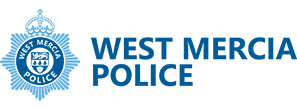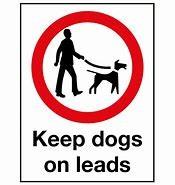|
|||||
|
|||||
|
|
|||||
|
Dear Resident
We are seeing an increase in people stopping us to report dogs off leads, and in regard to dogs they feel maybe unsafe.
Can you please take a look at the below information and ensure that if you do have a dog, it's safety is maintained as well as that of the public.
Control of Dogs Controlling your dog is not only about using the right equipment but also about training and awareness. Although there is no blanket law requiring dogs to be kept on a lead in all public spaces, you should aim to do so unless it is a designated off-lead area in order to prevent the risk of harm. There are a series of orders that mean you have to leash your dog in certain places in your local area. For example in children’s play areas, sports pitches, roads, parks and beaches. The Highway Code also says that dogs should be kept on a short lead along roads and on paths shared with horse riders or cyclists (rule 56). Over the last few years, many local authorities have introduced Public Spaces Protection Orders to restrict dogs being walked on lead (or excluded from the area entirely) in certain public spaces. Look out for signage detailing restrictions. We also recommend checking your local council’s website for details of any restricted areas.
Dog Harnesses One of the key tools in ensuring your dog's safety and the safety of those around you is a proper dog harness. Unlike collars, harnesses distribute pressure more evenly across a dog’s body, reducing the risk of injury to their neck and throat. They also provide better control, which is particularly useful for larger or more energetic dogs. When selecting a harness, make sure it fits snugly but comfortably, allowing for easy movement without slipping off.
Muzzles
In certain situations, a muzzle may be necessary to ensure safety. While some people view muzzles negatively, they are an important tool for preventing bites, particularly in stressful situations or when a dog is reactive around other animals or people. It is crucial to choose a muzzle that allows your dog to pant and drink, and to train your dog to wear it comfortably.
UK Law on Dog Owners’ Responsibility
It's important for all dog owners to be aware of their legal responsibilities. In U.K. law, if your dog bites someone, you could be held responsible. The Dangerous Dogs Act 1991 states that it is a criminal offence to allow a dog to be dangerously out of control, whether in a public place or on private property. This includes your own home and garden. If your dog injures someone, you could face severe penalties, including fines, imprisonment, and your dog being destroyed.
Steps to Take If Your Dog Bites Someone:
1. Remain Calm: Try to keep the situation under control. 2. Provide Assistance: Offer immediate help to the person injured. 3. Exchange Information: Provide your contact information to the injured party. 4. Report the Incident: Notify the local authorities about the incident. 5. Consult a Professional: Seek advice from a veterinarian or a professional dog trainer to address the behaviour that led to the bite.
By following these guidelines and understanding your responsibilities, you can help keep the area a safer place for everyone. Remember, responsible dog ownership not only protects others but also ensures a better quality of life for your pet.
If you have any questions or need further advice on dog safety, please do not hesitate to contact your Safer Neighbourhood Team. Together, we can keep our community safe and enjoyable for all.
| |||||
Reply to this message | |||||
|
|||||
|
|
|||||

|
|








